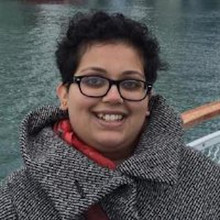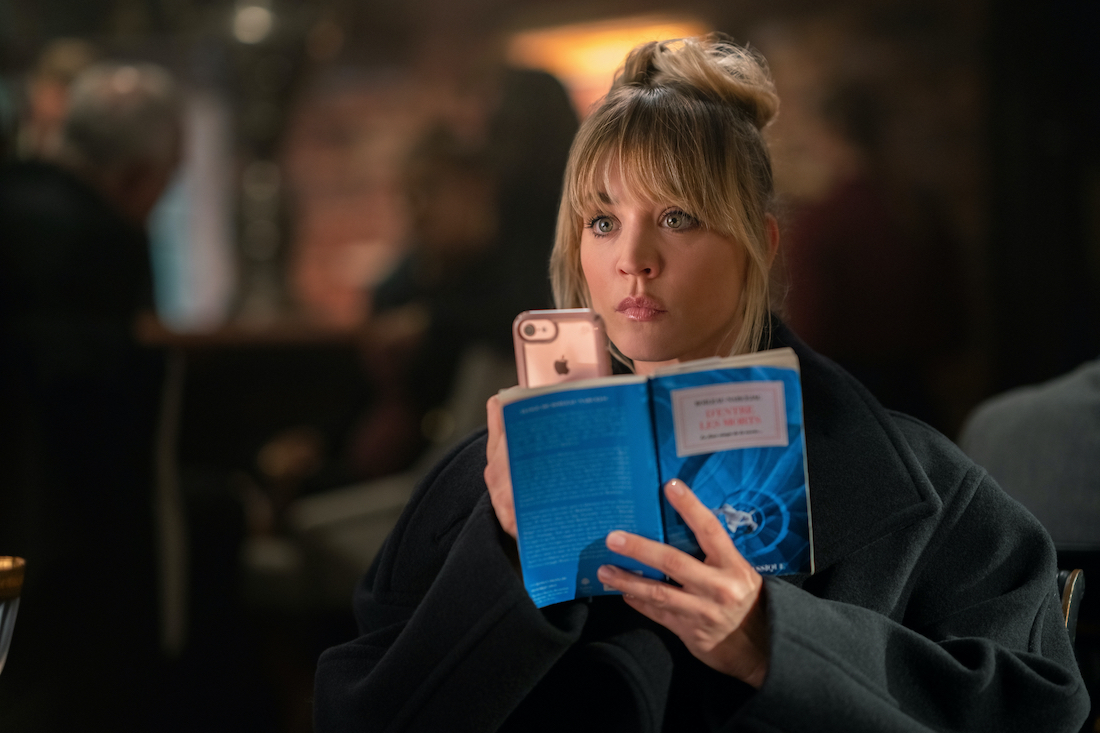There is a place for fluffy television. Most of the original “Sex and the City” could be classified as fluff, painting all women with broad heteronormative, fashion-obsessed, transphobic, man-made brushes. Any and all Kardashian, Vanderpump, and Housewives content could be labelled fluff. I’m a longtime “Project Runway” enthusiast, and more than a few people have called that fluff too. There is a place for escapist television, for programming that has nothing to do with reality, and provides pure detachment from one’s own financial anxieties, relationship troubles, and physiological exhaustion from toiling in a capitalist police state.
What I object to, in the strongest possible terms, is using five and a half episodes of fluff to merely buy a third season, thereby distracting from the core reality of a story: one character’s struggle with addiction, and how that struggle influences the lives of everyone around them. “The Flight Attendant” doesn’t use just any cotton candy-weight tropes to excuse Cassie Bowden’s (Kaley Cuoco) new, seemingly sober life. It talks down to alcoholics, their family members, and friends. But worst of all, the writing is an insult to the acting caliber of all involved, especially the usually wonderful Zosia Mamet and new cast member Shohreh Aghdashloo.
When last we met the characters of “The Flight Attendant,” Megan Briscoe (Rosie Perez) was fleeing the country because she sold secrets from her husband’s comically nondescript corporate job to the North Korean government. Cassie came clean about her alcoholism. She not only admitted the extent of her drinking, but shared for the first time the mangled nature of alcohol in her memories: her father introduced her to alcohol as a child, which made her feel special, and bonded them. When he died in a drunk driving accident, Cassie was in the car with him, fled the scene, never told anyone, and has been a mostly-high-functioning alcoholic ever since. The first season of “The Flight Attendant” never really settled on a genre. Sometimes it was an espionage thriller, or “The Office” but with airplanes, or an Agatha Christie-esque work-backwards-from-the-crime caper. The writing—and most importantly, Cuoco’s acting—only became honest when Cassie revealed how alcohol is the only positive memory of her father, while also serving as the substance that can help her forget her trauma.

In season two, Cassie has moved to Los Angeles, where she is a regular at Alcoholics Anonymous. Her sponsor, an elegant older woman named Brenda (Shohreh Aghdashloo), possesses the preternatural serenity you’d want in an AA sponsor. We see very little of Brenda, but when we do, the series briefly becomes something more meaningful, with a beating heart. Though she occasionally brushes up against a few cranky types at meetings, Cassie is upbeat, standing firm in her sobriety, and is even approaching her one-year-chip day. Former Mob lawyer and new job seeker Ani Mouradian (Zosia Mamet) is visiting LA with her boyfriend Max (Deniz Akdeniz); the latter grew up there and would very much like he and Annie to return to his hometown, but Annie is gun-shy, despite accepting an engagement ring from Max. Cassie still works full-time for Imperial Atlantic, but she has picked up a side gig at the CIA, for whom she is tasked with performing minimal monitoring of suspects.
Benjamin Berry (Mo McRae) is Cassie’s handler and continually advises her to stick to her directives, but Cassie—and here’s the kicker—has a new addiction: danger! Megan is hiding in an undisclosed but comfy location: record player, woolen sweaters, fireplace, cozy furniture. For reasons initially unknown, an unnamed woman (Margaret Cho) comes to check on her every day. Mae Martin plays Grace, a new flight attendant colleague who may or may not have a secret life.
Mamet’s Ani is saddled with being an indecisive Debbie Downer; most of her dialogue, in conversations with her chipper boyfriend Max is comprised of “um” and “uh” and “Okay, but, like.” This is an actor who held her own on “Mad Men” and was the only funny part of “Girls.” The number of regressive tropes assigned to Ani’s storyline becomes unbearable. “The Flight Attendant” also squanders the considerable talent of Griffin Matthews, whose work as fellow flight attendant and CIA asset Shane is the most restrained, and possibly by necessity understated, performance in the series.

The massive success of the first season bought writers who came up with a fresh new take on self-examination: Cassie experiences visions a la the titular character on Disney’s “That’s So Raven.” The camera zooms in on Cassie’s eyes and she flashes to an empty hotel lobby, in which she converses with three Cassies: a teenage version, the season one version in that sequined dress, and a Cassie we haven’t met, dressed in black. Issa Rae used a simplified version of this trope on “Insecure” for five seasons and killed it every single time. But on “The Flight Attendant,” there is no such attention to detail, nor usage of Cuoco’s considerable charm. HBO money can buy chic draped coats and red leather gloves for its stars but it mustn’t be used on examining interior conflicts in an innovative way. That same money can’t buy decent editing, because every single frame of “The Flight Attendant” is cut into two or more squares or rectangles, because that means the show is fashionable and sleek. It also can’t buy decent music, because every single frame of “The Flight Attendant” is backed by what sounds like a “Catch Me If You Can”/John Williams tribute band, complete with, inexplicably, beatboxing. When the series could benefit from dropping background music altogether, it persists, diluting the impact of its most important scenes.
Addiction is a disease, not a choice. The actions of an addict affect their psyche, their bodies, their souls, but they also affect the lives of their loved ones, and sometimes, the empathy tank on an addict’s loved ones flashes ‘empty.’ There is more emotional violence and brutal sucker punches of honesty in the sixth episode of “The Flight Attendant” than entire seasons of other shows. Chic tracking shots are traded for handheld cameras that follow every enraged exhale, every falling tear. I could almost forgive the inert storytelling of the five episodes before it. But I cannot, because it is an insult to Cuoco, especially, for the writing to relegate her to cartoonish ditzy bumbling blonde territory for five hours, and saving the raw devastation of Cassie’s interiority for its final moments. “The Flight Attendant” will undoubtedly be renewed for a third season, but I know now which scenes to look out for, and which to ignore.
Six episodes screened for review. The first two episodes of the second season of “The Flight Attendant” premiere today, April 21st.












